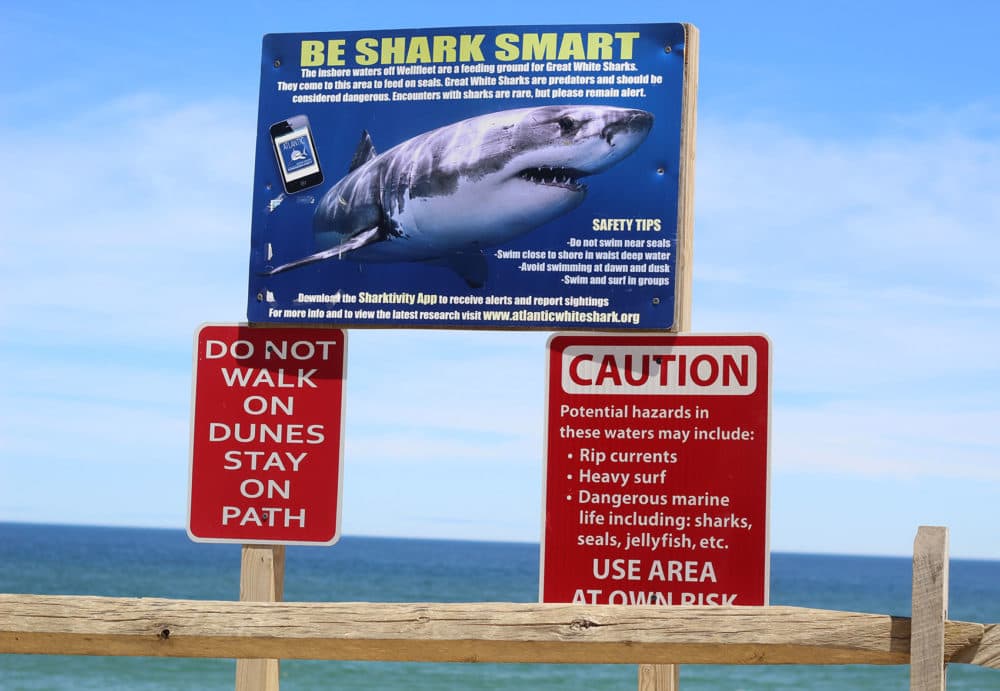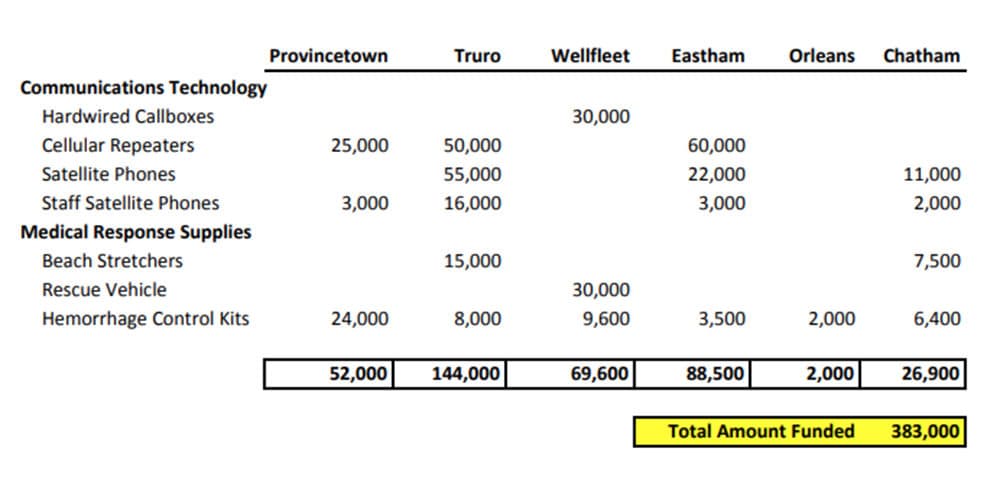Advertisement
Callboxes And Hemorrhage Kits: What Outer Cape Cod Towns Are Buying To Address Shark Safety

Less than a year after a shocking fatal shark attack, and as experts predict seals will continue to draw sharks closer to the Cape's shores, state and local officials have taken steps to address public anxieties and invest in shark safety efforts.
According to the town of Wellfleet, there have been five "significant incidents involving white sharks and humans" since 2012, including the death last September of 26-year-old Arthur Medici, a surfer from Revere, who was bitten at the town's Newcomb Hollow Beach. His death was the first shark attack fatality in Massachusetts in more than 80 years.
To help bolster public safety ahead of summer tourism, the Baker administration announced in April it would provide $383,000 in grant funds to six outer Cape municipalities.
Here's a recent breakdown of how much money each of the six communities is slated to receive, as well as what technologies or supplies they plan to buy:

All of the communities will buy medical "hemorrhage control kits" for their beaches. Many of them also plan to invest in technologies that would extend cellphone service or otherwise make certain emergency calls can be placed on beaches known for spotty, if not nonexistent, cell coverage.
The Cape Cod Commission has given an additional $15,000 to support a study by the Woods Hole Group, in partnership with the towns and the Atlantic White Shark Conservancy, to test what kinds of shark detection devices actually work.
Wellfleet Town Administrator Dan Hoort said the communities expect to have a report from the Woods Hole Group come September.
He explained that, following last year's shark attacks, the outer Cape communities were inundated with recommendations — some from citizens, others from salespeople — as to how to keep sharks a safe distance away from humans.
The proposals ranged from the logical — better cell service and medical supplies — to ideas a bit more outside the box — like installing an underwater sound recording of an orca to scare away sharks, or shark netting, or even birth control for seals.
Advertisement
“The concept for that person who was thinking about it was, if you had, say a pellet gun, you could shoot a pellet gun with a birth control in it,” Hoort explained, and the seals would consume the birth control and become sterile. The seals are protected from being killed under the federal Marine Mammal Protection Act of 1972.
Then there were the calls for technology that town officials just weren't sure about, like shark buoy detection systems. Or so-called "shark repellents" — devices people claimed could attach to surfboards or wrists to emit a small electrical charge that keeps sharks at bay.
Hoort said leaders in the Cape communities have been nevertheless open to ideas, so long as the idea "will make people safer, and it's been demonstrated that it works, and it fits the topography of our ocean beaches." The towns felt strongly, he said, that before money could be spent on potentially untested technologies, more research needed to be done.
In the meantime, Wellfleet will be the only one of the six communities to buy an all-terrain vehicle this summer to deal with a well-known challenge on its beaches: high dunes. The vehicle will ensure emergency responders can quickly reach an injured beach-goer without delay while also making it easier to transport heavy equipment, like a stretcher, needed to treat the person.
The towns have also been hosting "stop the bleeding" training to allow residents and town workers to learn how to treat wounds as traumatic as a shark bite.
"We want to make sure we do the right thing," Hoort said, adding the communities want to avoid taking up a new tactic or putting something in the water that leaves "people to believe they are safer now when they may not be."
